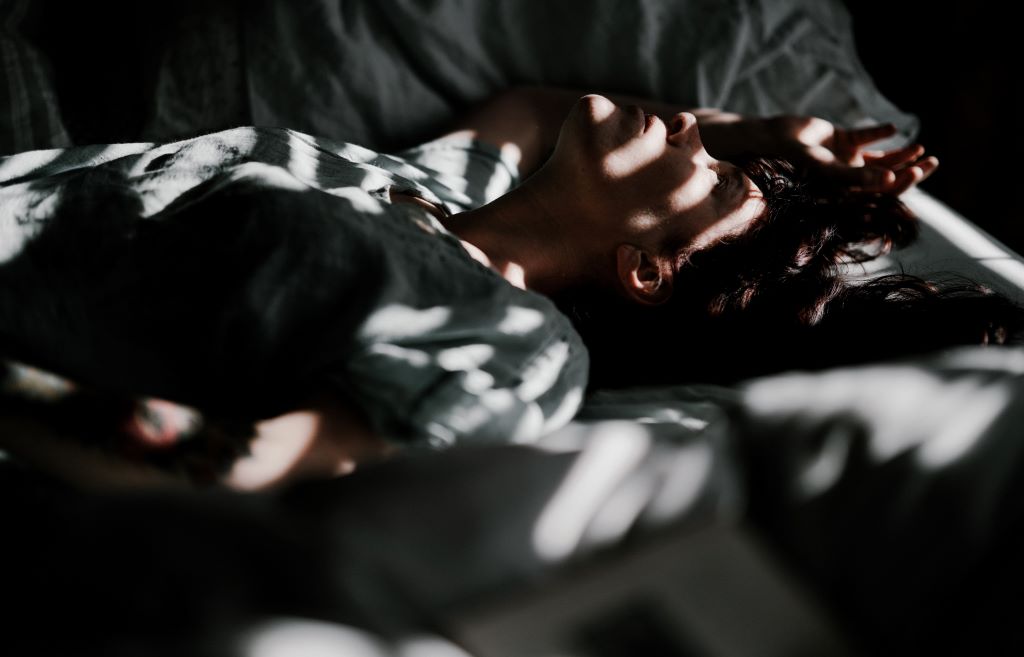What our sleep is telling us about our overall health

Sleep. We all know we need it to function but an uninterrupted night is something of a distant dream for many people. From restlessness to anxiety, trouble waking up to trouble falling asleep in the first place, the myriad problems surrounding sleep have made getting it right something of an art form – and one that many of us have yet to learn. Research from the Royal Society for Public Health found that we sleep an average of 6.8 hours a night – less than the 8-9 hours recommended – and that as many as 16 million adults in the UK are suffering from insomnia.
These statistics are worrying –a good night’s sleep is essential to our health. Not only does it improve our long-term memory and concentration, it boosts our immune system, helps keep our heart healthy, reduces anxiety and keeps our weight under control.
Whether the sound of your alarm going off fills you with dread or you feel like you know the details of your bedroom ceiling better than the back of your hand after spending so many nights staring at it, you’re certainly not alone.
There is good news, though. Our sleep problems are often a good indicator of other issues with our health, so if you’re noticing a pattern, you should be able to find the underlying cause and its solution.
Below are some of the most common sleep problems around and what they might be telling us about our overall health.
The problem: difficulty falling asleep
What it means: we’ve all been there: getting into bed only to find that we’re suddenly feeling more awake than we have all day. if you’re having trouble drifting off it could be a sign that your brain is overstimulated. As we know, stimulants such as caffeine, nicotine and too much screen time can lead to an overactive brain, so cleaning up your sleep habits will usually prove helpful. As tempting as it might be to watch Netflix in bed, turning off your screens at least an hour before sleep and moving onto caffeine-free drinks in the afternoon can help to solve this problem.
The problem: difficulty getting up
What it means: this is a problem that many people suffer from. If you wake up feeling more tired than you did the night before, it could be a sign that your circadian rhythm is out of whack. The body’s circadian rhythm is a natural internal clock that runs in a rough 24 hour cycle for most plants and animals. It indicates when it’s time for our bodies to wake up and when they should go to sleep. A good way to start regulating this is to give yourself a set bedtime and wake time – even at the weekends. Setting yourself up with sleep cues can also be really beneficial – whether that’s turning off screens, making yourself a cup of soothing caffeine-free tea or having a relaxing bath every night, if we have regular soothing bedtime routines, our brains quickly adopt them as signifiers for sleep. The more strict you are with your nighttime drill, the easier it will be to wake up at the same time naturally each morning.
If you find that the winter takes a particular toll on your ability to get out of bed, investing in a sunrise clock could also be hugely beneficial.
The problem: snoring
What it means: if your snoring habit leads you to wake several times in the night, gives you headaches or a sore throat, it might be time to consult a doctor. Sleep apnoea – a condition that can stem from weight gain and obesity and that causes interrupted breathing – can have serious long term consequences. Disordered breathing prevents oxygen getting to the brain and the rest of the body, which can, in turn, lead to a risk of high blood pressure or even increased risk of heart attacks.
The problem: waking up to go to the loo
What it means: waking up regularly in the night to go to the loo - a condition otherwise known as nocturia - is often caused by bladder weakness or drinking too many fluids too close to bedtime. Though it might be tempting to reach for that after-dinner espresso or turn Friday night drinks into every-night drinks, this could be putting a lot of pressure on your bladder - so try to avoid drinking anything too close to lights out. Being a light sleeper can also be a cause, as you’re far more aware of your bladder’s fullness when you’re not in a deep sleep.
Reclaim your night time routine
Though some of the most common sleep problems are indicators of more significant health complications, many of them can actually be eased by the implementation of a stricter sleep routine. If you can add some structure to your sleep rituals by going to bed and getting up at the same time, limiting your Netflix watching in the evenings, avoiding caffeine after midday and stepping away from heavy food and drink in the two hours before bed, you’re far more likely to become that chirpy morning person you’ve always dreamt of being than if you don’t.
If you enjoyed reading this article, you might like Supplements for fatigue.



 Tara
Tara





